
We kindly inform you that, as long as the subject affiliation of our 300.000+ articles is in progress, you might get unsufficient or no results on your third level or second level search. In this case, please broaden your search criteria.

In this article, the author examines the problems of Ukrainian modernization policy, in the context of which the author has analyzed the correlation of endogenous and exogenous factors, with specific reference to the socio-cultural component in the modernization process. The problem of rebirth of national cultural traditions has been foregrounded, with particular emphasis on the retraditionalization of state political system playing the key role in the process of further reformation of all spheres of public life. On the basis of retrospective analysis, the author discusses the advantages and disadvantages of the Ukrainian modernization process.
More...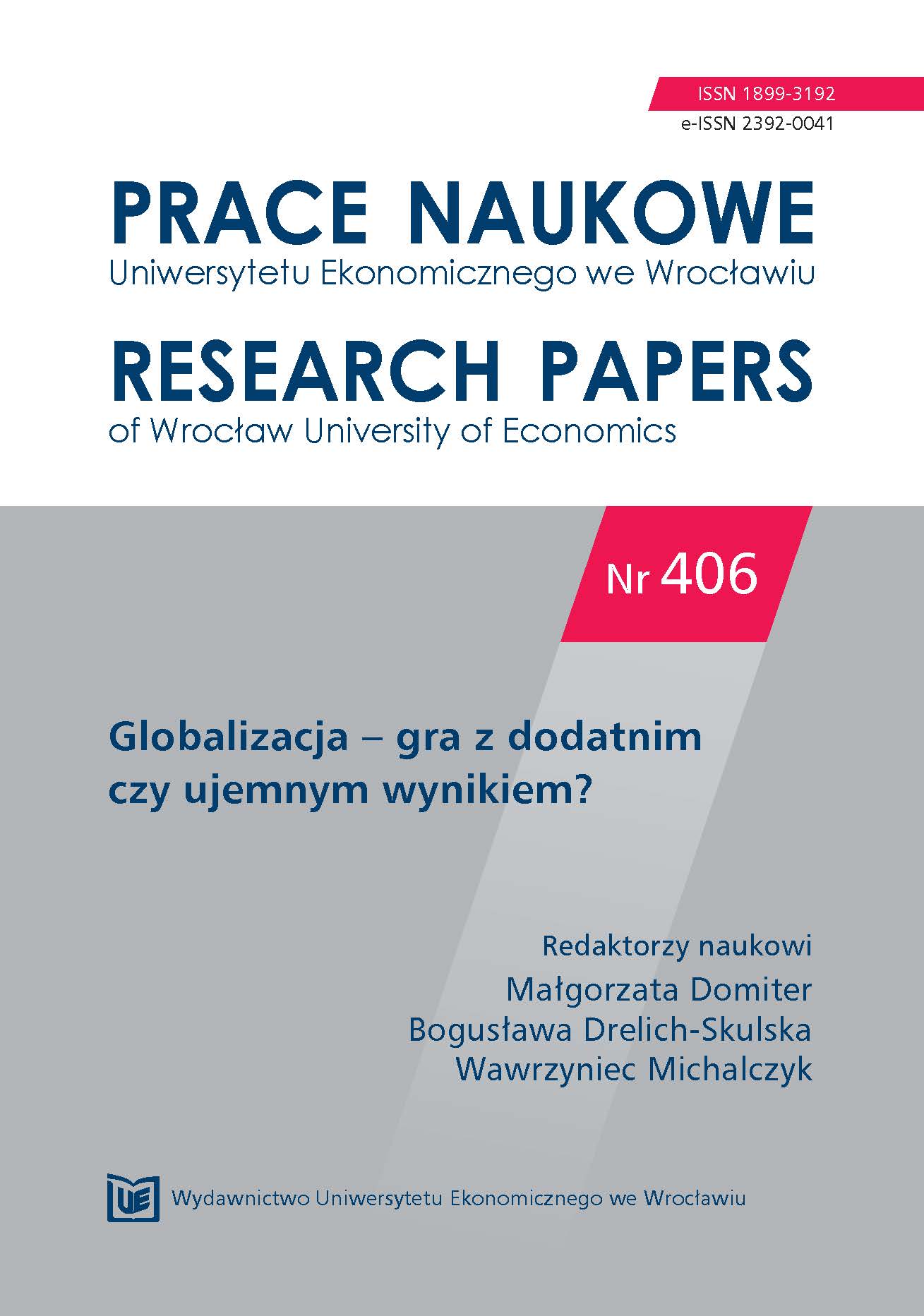
The existing statistical data on trade in services show that LDCs do export services and some, indeed, are net services exporters contradicting commonly held assumptions that export opportunities in trade in services are marginal in the trade aspirations and development trajectory of LDCs. The paper focussing on recent trends in the Least Developed Countries (LDCs) exports of commercial services describes the LDCs current services export performance based on the WTO trade in services statistics for 2013. The first part describes the overall value and changing dynamics of LDC services trade, points to recent trends, and identifies areas of importance and focus for LDCs. The second part presents the sectoral composition of LDCs’ services exports, revealing differences based on geography.
More...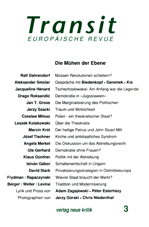
Vergleiche sind der Nährboden der Sozialwissenschaften. Jeder SozialwissenschaftIer, der sich mit dem kataklystischen Umbruch befaßt, der in den Gesellschaften des »real existierenden Sozialismus« im Gange ist, wird instinktiv nach vergleichenden Perspektiven suchen. Im gegebenen Fall wird das, angesichts des einzigartigen Charakters der Entwicklungen, schwierig sein. Abgesehen von einigen unbedeutenden Ansätzen hier und da, hat es nie zuvor einen einschneidenden Wandel vom Sozialismus zum Kapitalismus gegeben. Allen Vergleichen haftet daher gezwungenernlaßen ein nur vorläufiger, wenn nicht gar metaphorischer Charakter an. Dennoch kann man, mit der gebotenen Vorsicht und Zurückhaltung, den Versuch einiger allgemeiner Beobachtungen wagen.
More...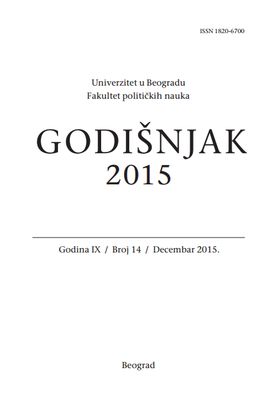
In this paper we want to point out the limitations of the most important moments in the ruling (sceptical )notion of people/nation, where, at least when it comes to criticizing/ destruction of the term, converge outlook of Marxism, political liberalism, and postmodern/ de-constructivism. The main critical theses against, we hold, one-sided criticism towards the concept of people are placing an overemphasis on arbitrariness and the fact of being-constructed in it, and overlooking the peculiarities of the process of crystallization in the history of what was first a matter of sheer accidentallity. In dialogue with the disputed topoi in the perception of the people are at the same time indicated the guidelines to reflect this problem.
More...
This paper uses bank level data of 26 commercial banks for the period 2001–2010 to explore determinants of net interest margins of commercial banks of Pakistan. Based on results of this study, past net interest margins, bank soundness, operating cost, industry concentration, relative market share, inflation, real depreciation and industrial growth have statistically significant and positive impact while diversification, change in bank size, lagged liquidity, stock market development have dampening effects on net interest margins. However, impact of ownership, GDP and credit market development is statistically insignificant.Our regression results suggest that stock market development as means of alternative source of finance contributes to reduction in net interest margins while the impact of banking sector development on breaking banking cartels and bringing net interest margins down had been insignificant. Exchange rate adjustments, rate of inflation and growth of the industry also cannot be ignored in management of net interest margins. Incentives for bank executives and managers to ensure efficiency in operating costs, reduction in the premium charged for bank soundness, diversification of bank activities and passing on the scale efficiencies to both depositors and borrowers can also play role to bring interest margins down to accelerate investment and growth in the country.
More...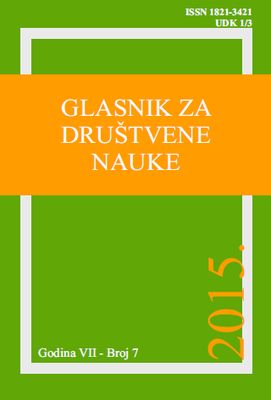
The article deals with Australia’s participation in World War I, more particularly, with the infamous defeat of the Australian Anzacs at Gallipolli. This defeat was used in Australia’s media discourse as historical background for the targeted and conscious imaginary construction of national identity. In accordance with the theoretical framework provided by Benedict Anderson, this identity was constructed by means of, among other things, specific use of language, mass distribution and democratization of the media, fictional amalgamation of the past, present and future into the same simultaneous level, as well as through the narrative reliance on the classical mythology of the Western world. The examples used in this article to illustrate the mechanisms of the imaginary construction of national identity are taken from The Anzac Book, a specific 1916 phenomenon of the Australian wartime propaganda. Finally, the article also addresses the questions of validity, authenticity and sustainability of the national myth as shaped and presented by the Anzac Myth, in the contemporary context of Australia’s mass celebrations of the Great War centenary.
More...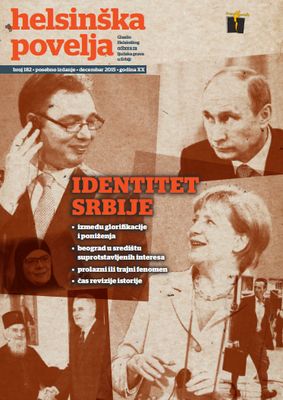

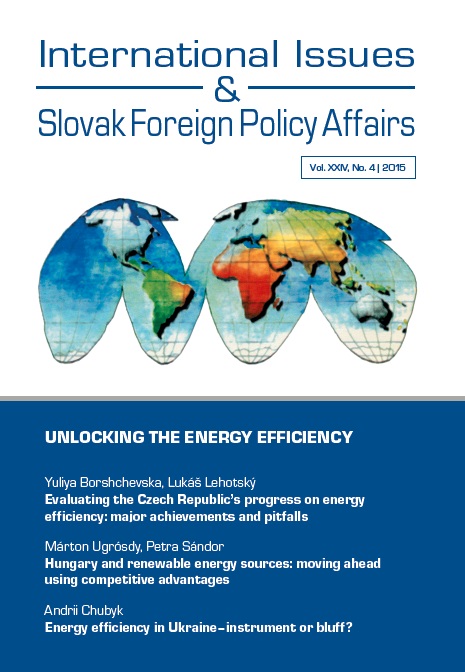
A book review of the title: Balázs Szent-Iványi, Simon Lightfoot, New York and London: Routledge, 2015,221 p., ISBN 978-0-415-87034-4
More...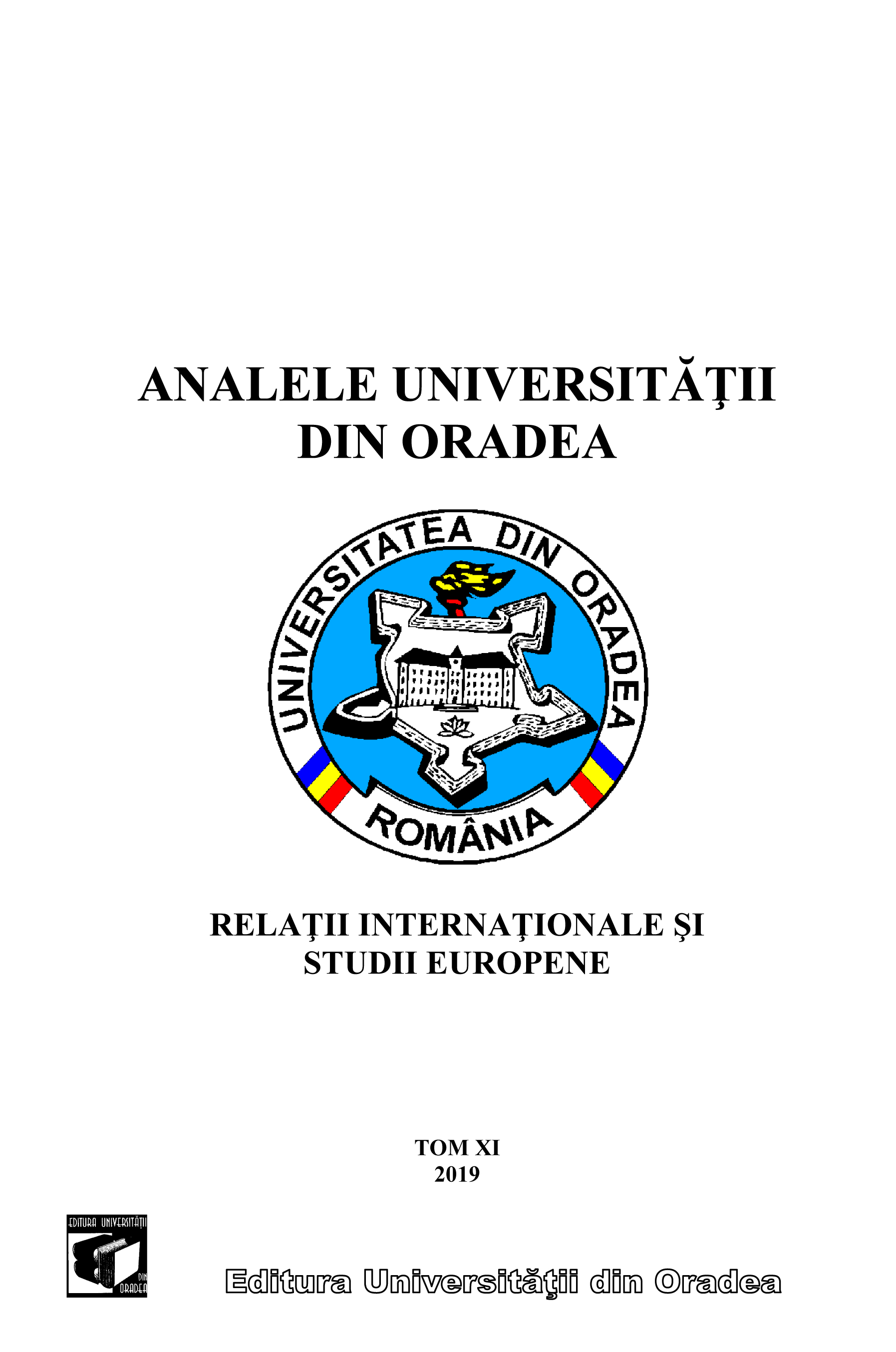
Review of: Dumitru, Diana, Vecini în vremuri de restriște: stat, antisemitism și Holocaust în Basarabia și Transnistria, Editura Polirom, Iași, 2019. ISBN 978-973-46-7666-8
More...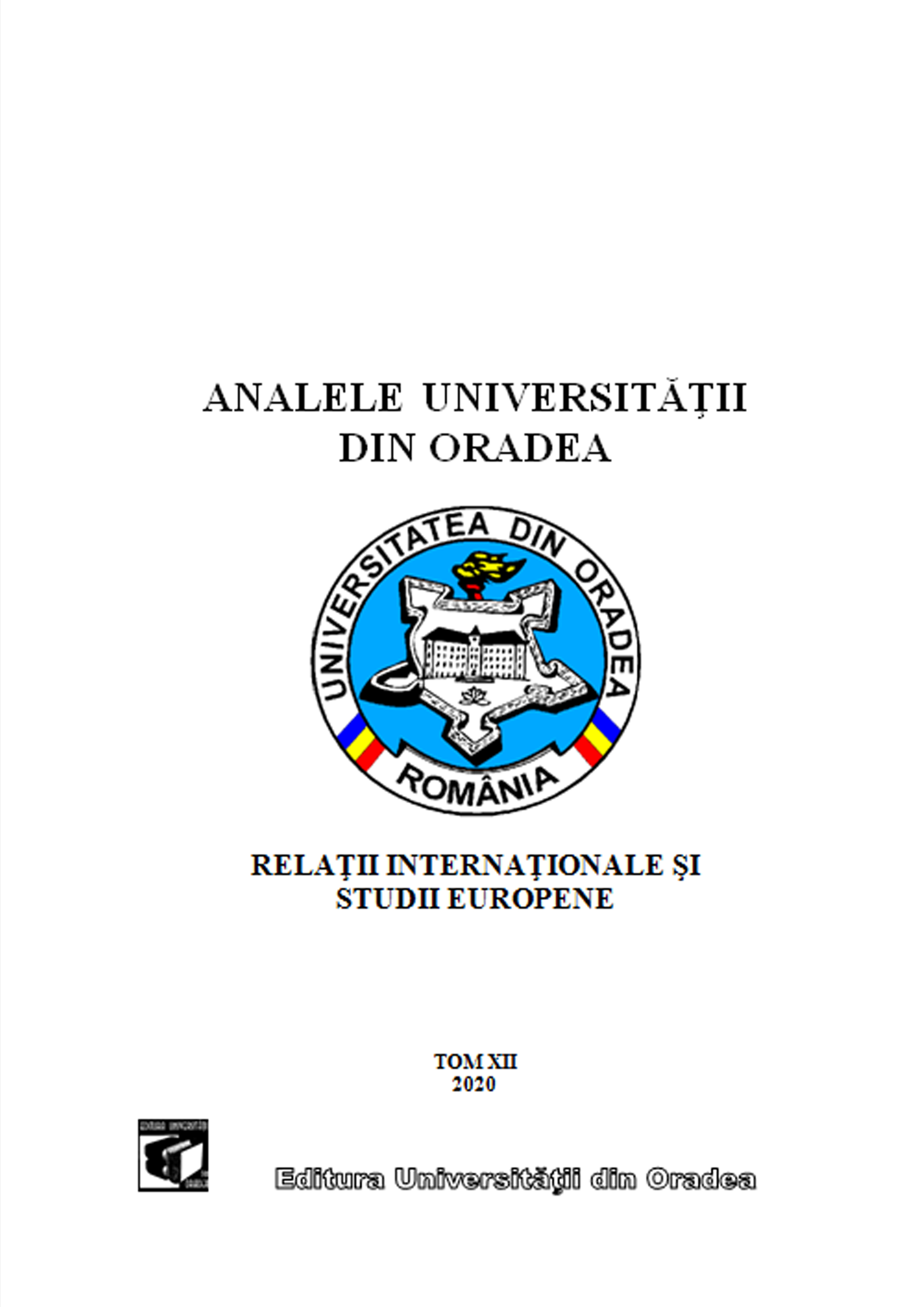
This study is about specific features of interpersonal communication from the point of view of the determining effects that they have on intercultural communication in Romania. This fact is seen as a social phenomenon with a determining role in forming and sustaining global societies. The general conclusion of the article refers to the possibility of monitoring and knowing the aspects related to the phenomenon of communication between people, in the context of European Union. This data is necessary in order to implement strategies connected to intercultural education in the social space of the Union. We use the database of Eurobarometer 89.1 (2018) from GESIS Data Catalogue, for making a database about Romanians perspectives and attitudes regard the European union society. We want to understand what European union means for Romanians and we conclude these meanings like arguments for integration. We want to show how is build the European identity in order of the possibilities of adapt intercultural education to Romanian society.
More...
In an effort to transform business operations and to integrate the property into the Sheraton chain of the hotel after a recent acquisition of the Okinawa Sunmarina Resort, the Starwood group was exploring opportunities for revamping talent operations, organizational architecture and internal communications. Shifting from pure intuition and just “doing one’s best” to a data-driven business operation was one of the first initiatives the management implemented. Along with this, the Starwood Group introduced a series of new talent operations, geared at hiring and successfully on-boarding international talent needed to provide multi-lingual service to a rapidly diversifying clientele. These initiatives were complemented by a combination of carefully devised data utilization and cognitive architecture techniques, which were meant to induce awe and to create agile employee and customer engagement.The main purpose of this article is to analyze the effectiveness of the techniques utilized by the Starwood Group to revamp organizational architecture and to modernize communications and talent operations in order to illustrate the effectiveness of digitalization, built architecture and user engagement initiatives in creating modern organizations, integrated communications, and agile talent operations.
More...
In the complex international system, made up of modern traditional states, it is necessary that the existing resources of the regions are very well managed to increase the citizens standard of living, which is supported by the European Union through public policies. In order to have all the necessary information, to understand the international, national, regional context, to fit their strategies and to receive support, public authorities (national, regional, county, local) have at their disposal legislative and financial measures, opportunities for national and international cooperation. The next step is to corelate them and implement them so that their results and objectives are felt, known, adapted and adopted for improvement in all areas and for all types of organisations. In this respect, the proposed solution, for the case study of Bihor County is the 2021-2027 Development Strategy for International Cooperation elaboration and design of the Guide for international cooperation development, which will be a practical one, presenting operational methodologies and procedures.The content of the guide will focus on: deepening and updating knowledge on the legal and institutional framework for regional, inter-regional, cross-border development, international partnerships; developing skills to harness European experience in the field of international relations development; planning and analysis of cooperation and partnerships; implementation, monitoring and evaluation of activities in this area. The practical utility of the Guide for the Development of International Cooperation will be that it is a mechanism for initiating, maintaining and developing international cooperation.
More...
Review of: Alina-Carmen Brihan (coordinator), The EU – Romania’s CentennialCelebration, 100 steps towards an active European citizenship, Tritonic PublishingHouse, 2018
More...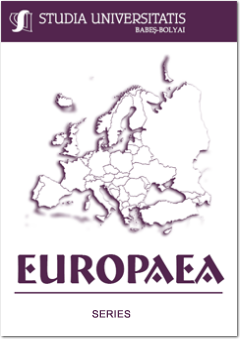
The paper aims to shed light on the particularities of two national liberation movements - turned political parties and how they embraced their new role after the liberation struggle had ended and majority rule had been obtained. South Africa’s ANC and Zimbabwe’s ZANU-PF are analyzed in an attempt to ultimately underline why democracy was approached distinctively by the too. We also bring some arguments as to why South Africa failed to stop ZANU-PF’s descent into autocracy, amidst internal and international pressures to intervene. After a short historical background of the two NLMs, we discuss the links between them, the particular political and social conditions which shaped their behaviours and the commonalities and differences in said behaviours. We argue that, as long as the democratic principles identified with ZANU-PF’s struggle for the empowerment of a new elite, the former were pursued; when the two no longer overlapped, stronghold politics and policies took primacy. We also argue that faced with similar contestation as ZANU-PF, the ANC might chose to sacrifice democracy for the sake of regime survival.
More...
Nowadays, more than ever, China plays a major role in economic activities in Africa. China competes aggressively with the West for control of the continent's strategic mineral resources. The great red actor considers that the imposition of Western democratic values on Africa is one of the main causes of political instability and economic stagnation, which is why he has chosen to adopt a different attitude which is has proven to be prolific in the context of globalization. The cooperation of the Democratic Republic of Congo (DRC) with China is currently considered by the Congolese people as a safety valve, an insurance against risks. Essentially, the DRC tops the list of China's strategic partners in Africa, and the DRC aims to attract China to help build infrastructure. This cooperation bears the signature of Joseph Kabila (president of the country from 2001 to 2018), his speech being a central point of this research. While the two countries boast of an exemplary model of win-win cooperation, this article aims to explore whether it is really a win-win collaboration or rather China is trying to invent a new order using a cosmetized neocolonialism.
More...
The aim of this study is to identify and critically assess the effects of appropriation of foreign political ideologies and practices in African political systems. This paper argues that there should be no leader, whatever his worth; look on his own personal problems to be exploited for the benefits of western’s Politics. Which will enable the African systems to develop, secondly, argues that Human Rights should be looked at to be an apportioned – responsibility, shared by both the former colonial powers and the current post-colonial political elites, rather than seeing Human rights promotion as yet another excuse to interfere or control other sovereign nations. The study will involve qualitative research involving reviewing other authors' literature, identifying current affairs, and critical assessing the ways in which neo-colonialism affects the different societies in transition from a colonial past to independence. The study is based on the fact that colonized countries, during the Cold War, suffered political oppression, economic exploitation, and social degradation, while alignment either with the capitalist or communist ideology failed. Currently there is a felt pressure to adopt a neoliberal ideology in order to access to have access to aid and investment. The study concludes with recommendations to third world leaders, to look at the people they lead as their responsibility, since no leader, whatever his/her worth, can replace the will of people. This results in a felt need to embrace democracy and such democratic values as: strong institutions, an independent judiciary and the separation of powers, individual and minority rights, and civil rights.
More...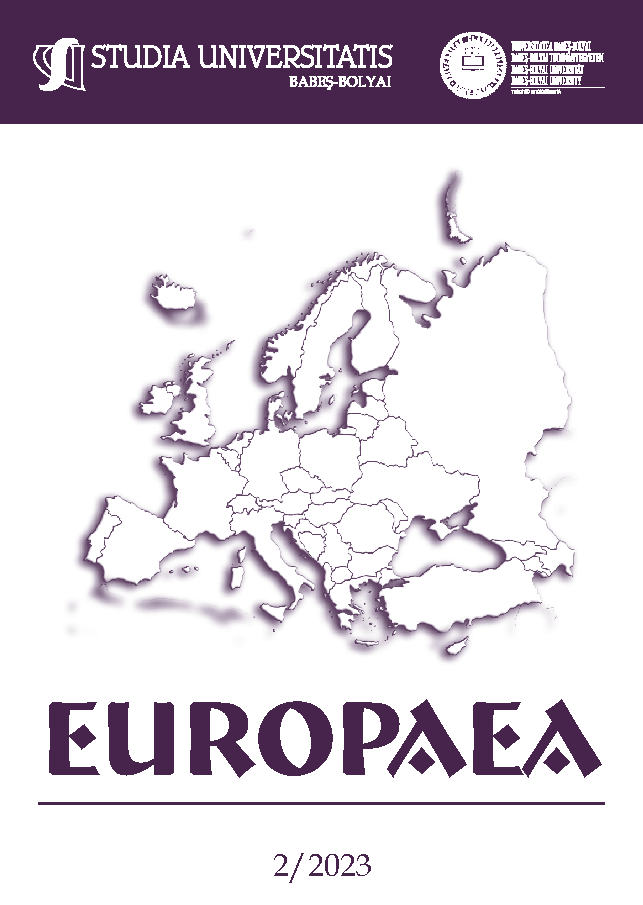
While official development assistance has had a positive impact in Asian countries, the situation remains disappointing in sub-Saharan Africa, and particularly in Cameroon. A number of variables explain this failure to achieve the objectives of official development assistance : while donors have repeatedly granted funds, it is no less true that they do not follow them up harmoniously in terms of implementation and allocation. Similarly, the responsibility of recipient states should be questioned. This article sets out to do just that, drawing on documentary research to understand the responsibilities of each party and to see to what extent official development assistance could also contribute to the development of the African continent.
More...
Pan-Africanism is both a project and a political commitment, an idea and an ideal which have largely contributed to the political and intellectual history of contemporary African societies. It is an imprecise term which leads to confusion. It is a word whose meaning varies depending on the individuals who use it. It is often constituted as an ideology, a political theory or even a concept. The question of its scientific definition is therefore almost never decided or discussed, each author making it, according to the needs of his demonstrations or his points of view, either an ideology, a concept, or a political theory. The proposal to include Pan-Africanism through the prism of the theory of social movements in this present study allows us to shed light and make a significant contribution to the history of Pan-Africanism.
More...